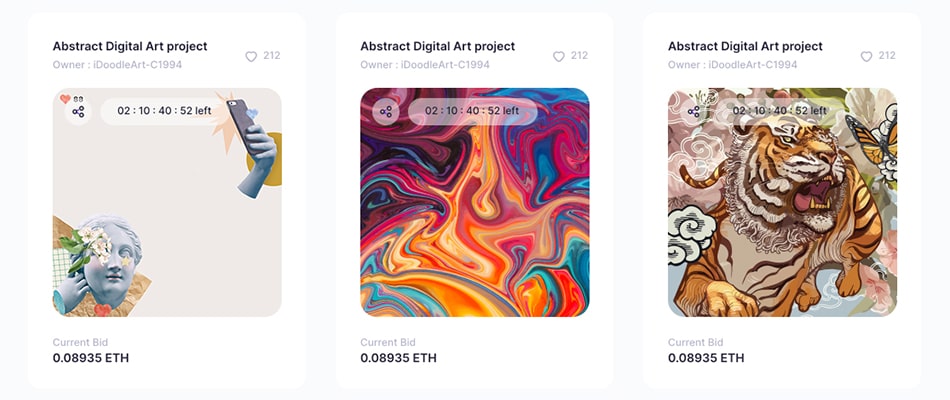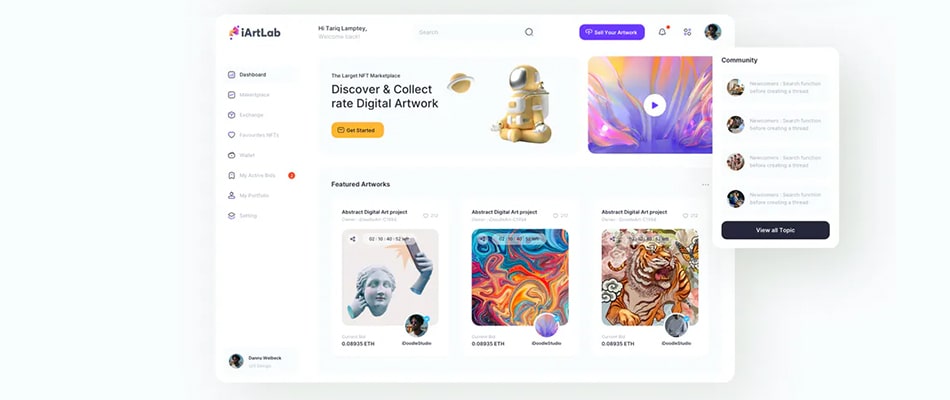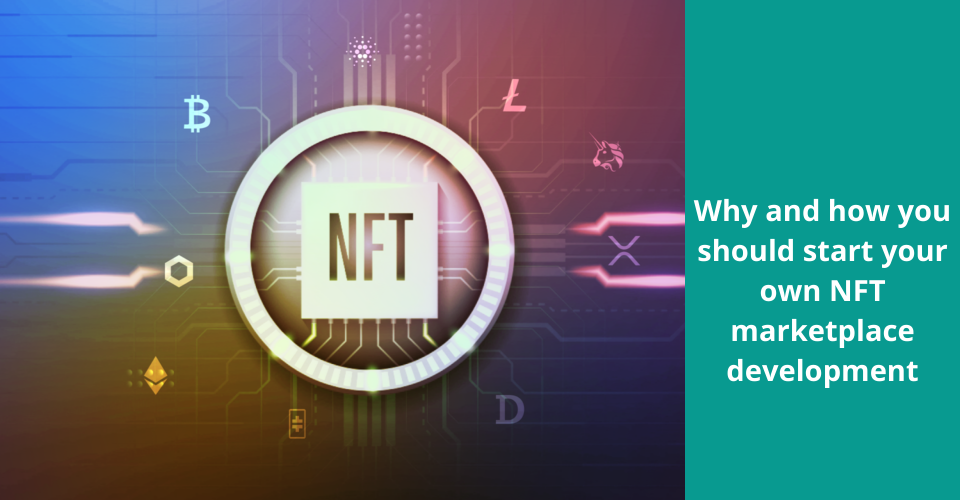For those intending to get involved with the NFT world, it is a great idea to start your own NFT marketplace development. Particularly why? And how? Read on to arrive at the answers.
What are NFTs?

NFTs (an abbreviation of non-fungible tokens) refer to files kept tabs on by the same blockchain technology that Ethereum and many other cryptocurrencies operate on. With this method, sellers and purchasers can keep a note of the file’s ownership.
Why you should start your own NFT marketplace development
There are perks for artists. For example, Thanks to the NFTs process, artists can easily get credit for their pieces and sell them. NFTs are beneficial to collectors and purchasers as well. Those buying NFTs are drawn in by the exclusive ownership enabled by the format. When it comes to collectors, no word can describe their satisfaction of becoming the owner of original artwork. They may likewise sell permissions for public use, thus earning income. Also, other buyers consider NFTs as a golden investment opportunity. Seeing that the market is volatile, they will keep the file until they can make more money from selling it.
How you should start your own NFT marketplace development: Things to consider

1. Storefront
Just about the same as eCommerce sites, NFT marketplaces need a user-friendly and appealing front-end storefront. The admin must determine the amount of information to showcase for each file. NFT buyers will desire to have a good idea of their files’ authenticity and provenance.
2. The file scope
When starting your NFT marketplace development, you need to determine the scope of to-be-traded files. OpenSea and a couple of the most established marketplaces are general markets that attend to all sorts of NFTs. More recent marketplaces tend to pay attention to a particular niche.
3. Listings
It is best if your NFT marketplace delivers the most positive possible experience for sellers and purchasers alike. When somebody desires to list a file, neat NFT development gives an intuitive path that streamlines the process. Advisably, the marketplace offers easy-to-follow instructions on uploading and forms that give selling information.
4. Search filters
The filters in your NFT marketplace development are another surefire way of enhancing a purchaser’s experience. The criteria of those seeing NFTs as an investment differ from collectors. It is recommended that users have the choice to sort items by artist, price, and other categories.
5. Buying & Auction
As to an auction, the back-end work for it is harder compared to basic sales. Particularly nearing the auction wrap-up, the intensity of bidding can increase and the site needs to give real-time process-specific information. The process of direct purchasing and selling is not as complicated. Still, smart contracts stored on the blockchain ask for more development in comparison with the conventional eCommerce sites’ payment gateways.
In conclusion, we hope that you have a clearer picture of NFT marketplace development. For further support, please do not hesitate to contact SmartOCS now. We are always more than happy to get back to you.
Contact us if you have any queries about Blockchain development services, dApps development, NFT marketplace development, Crypto wallet development, Smart contracts development.

